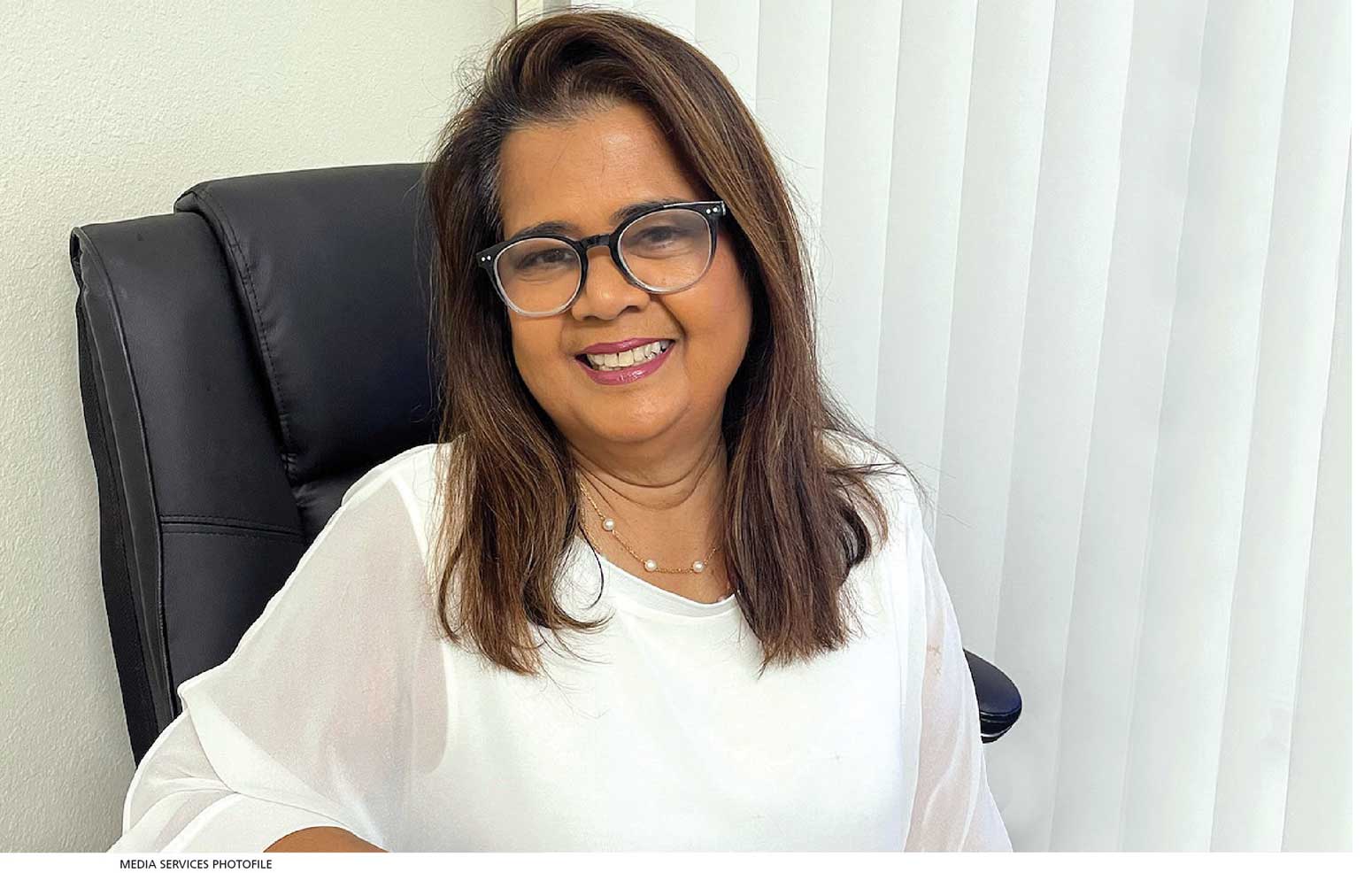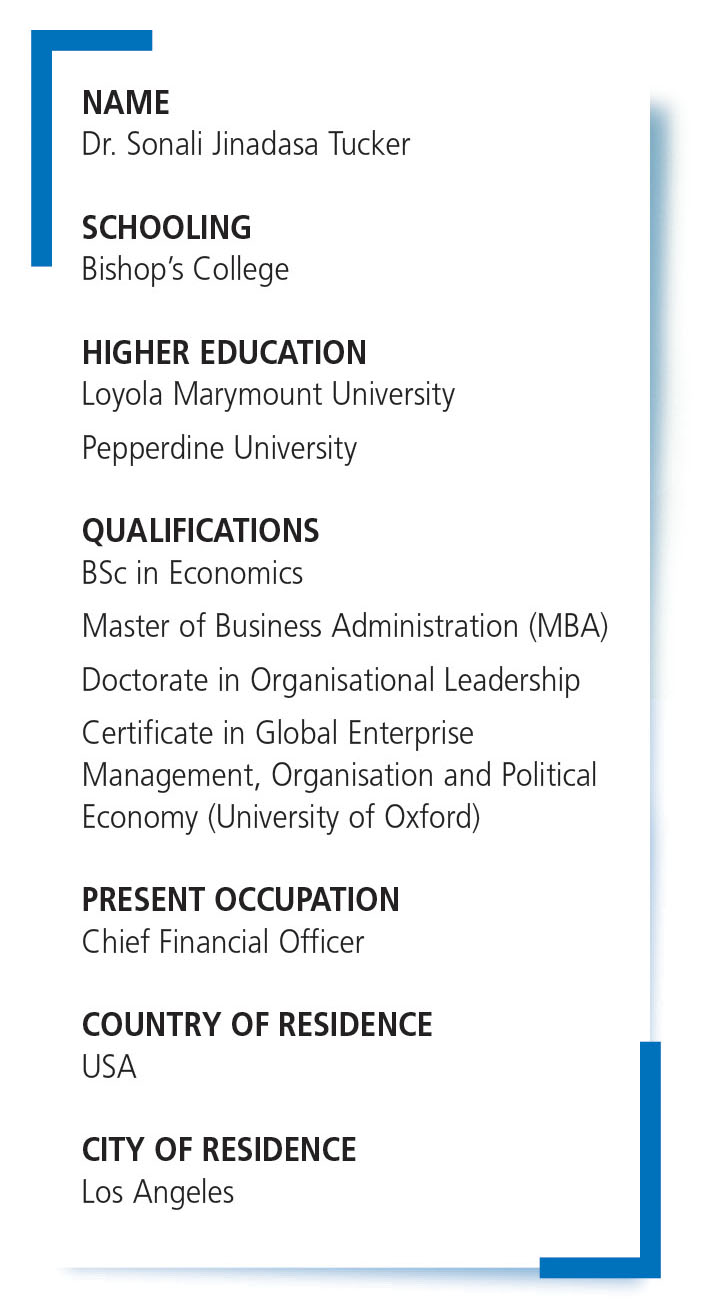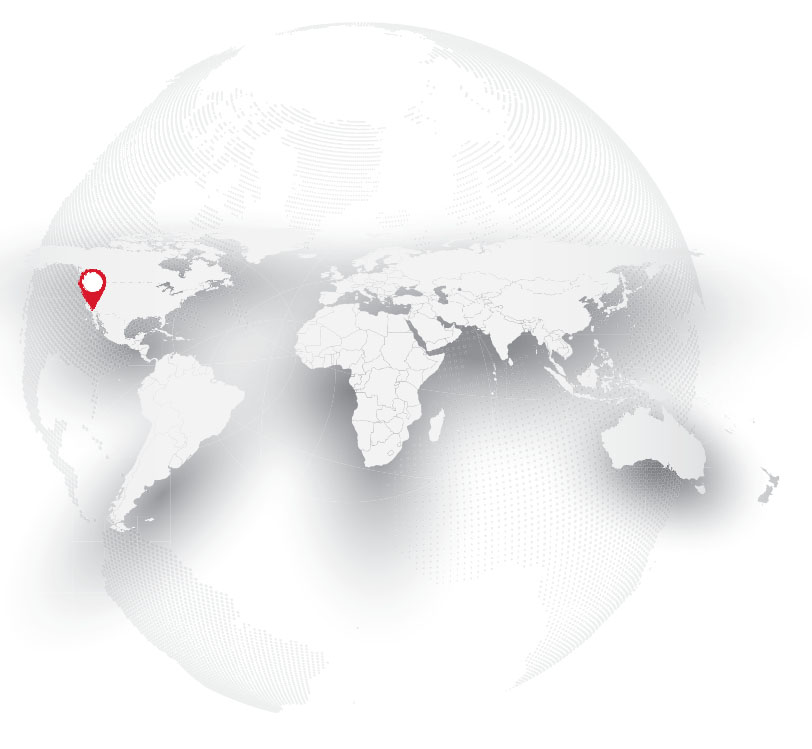SRI LANKANS OVERSEAS
RIDING OUT THE ROUGH
Dr. Sonali Jinadasa Tucker
People will hang on since this isn’t Sri Lanka’s first rodeo
Q: How do you perceive Sri Lanka today?
A: Together with its supplementary and complementary businesses – such as hotels, restaurants and travel operators – tourism has progressed. The highways that connect various key towns and tourist destinations certainly add value to this. As long as workers are being paid a living wage, this is progress.
Another sector showing progress is education. There are more international schools than I can remember, as well as organisations that have partnered with universities outside the country to offer educational opportunities to the youth.
Although these facilities are available and affordable only to some, opportunities have undoubtedly been created. The challenge is to quickly develop equitable opportunities for all.
Q: Do you think Sri Lanka is capable of regaining its composure in the aftermath of multiple crises – including the most recent economic crisis?
A: Of course it can – after all, this is not our first rodeo!
In a practical sense, people will need to adjust, be more innovative in finding ways to overcome obstacles and proceed with living fulfilling lives. Since times of crisis beget innovation and creation, it will certainly be the case in Sri Lanka too.
I remember growing up in Sri Lanka at a time when we didn’t have refined sugar and had to consume local substitutes for butter while bread had the occasional termite in it. In short, we survived and thrived – as we will this time around too.
Q: What advice would you offer Sri Lankans in the context of crisis management and finding solutions to the many problems they face?
A: Crisis management is about preparing for the best, worst and most likely case scenarios. All three are essential so that we don’t get stuck in the worst case scenario, devoid of hope or strategies for prosperity.
We shouldn’t live in the best case scenario either where we have no umbrella to protect ourselves on a rainy day. The need for the most likely case scenario is to ensure that our resources are allocated accordingly.
And we also need to learn, live and more importantly, vote in a less self-serving manner.
Q: How do compatriots in your country of domicile view Sri Lanka?
A: For the most part, it varies according to what the news media is covering at the time. The backdrop is always that it’s a resplendent isle.
However, the diaspora that has entered the US at various times has brought with them their own tropes. Their narratives definitely add depth – good and bad – to this wondrous island, a visit to which I am certain is on many an American’s bucket list.
Q: Likewise, how do other Sri Lankans living in the United States view Sri Lanka?
A: As mentioned earlier, the umbilical cord has not been severed; I would say most Sri Lankans never leave ‘home.’
Sri Lankans here participate in numerous ways to support and raise funds for causes in their country of birth; they gather with their fellow islanders through various organisations. In Los Angeles, there are celebrations on ‘Sri Lanka Day.’ The culture is palpable.
Q: What were your impressions of Sri Lanka on your last visit – and how much has it changed from the past?
A: I was last in Sri Lanka in 2020. And I visit often enough not to be struck by major changes. But I’ve noticed that there a many more structures in general; and on each visit, I see a new five-star hotel crowding the horizon.
Q: How do you view the brain drain – and why is there still no reversal of it, in your opinion?
A: As we all know, a lack of opportunities is the cause. Creating opportunities will reverse it. Educational opportunities, vocational and occupational training, and so on must be developed – and should extend beyond the Western Province.
Q: What should Sri Lanka focus on most in the coming decade?
A: Human rights and education, and education on human rights, are critical areas. If we don’t make them priorities, no other area of progress will matter.
Q: And what are your hopes for the country in the next decade or so?
A: I hope that evolved women and men will establish a secular society where all communities can live in a culture of equity, opportunity and growth.










Leave a comment